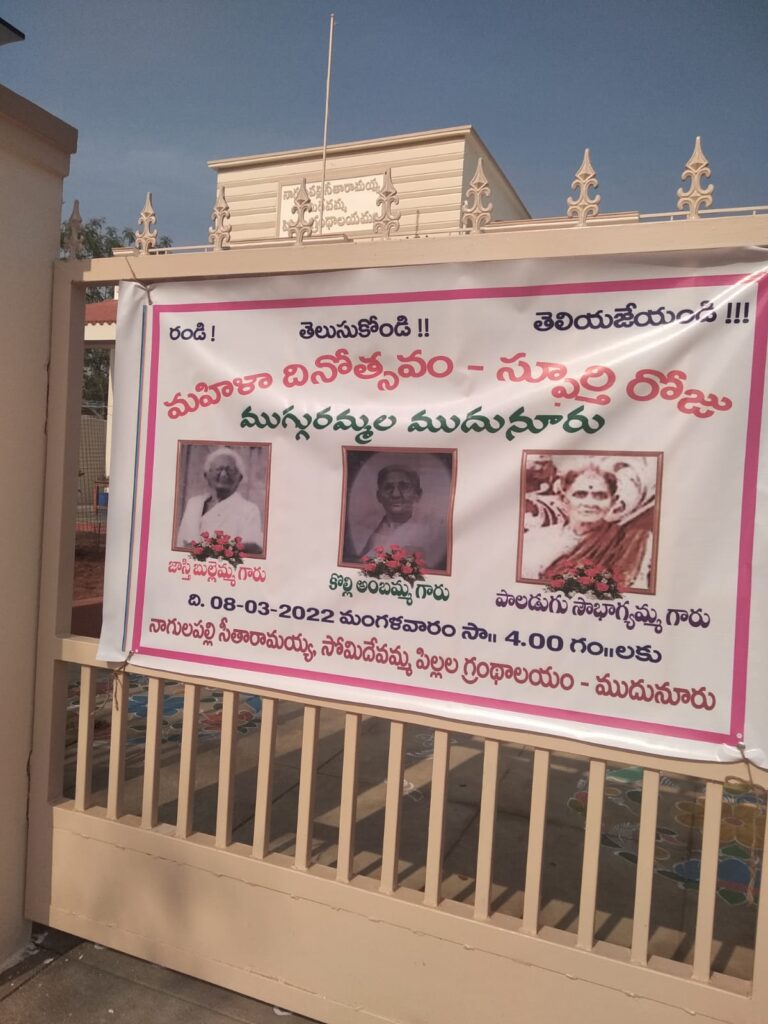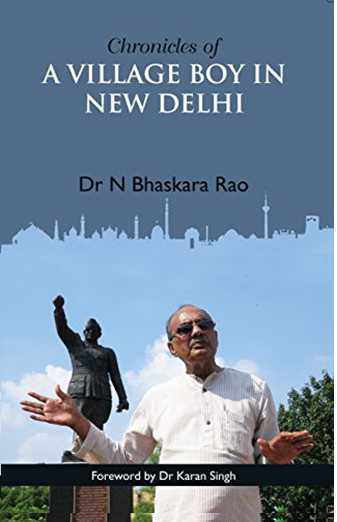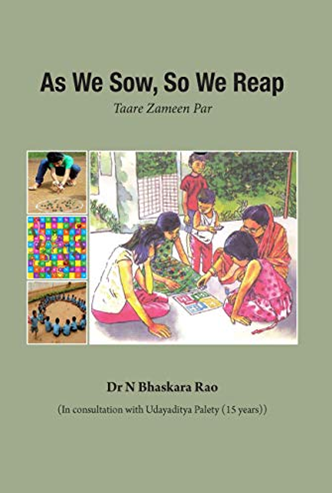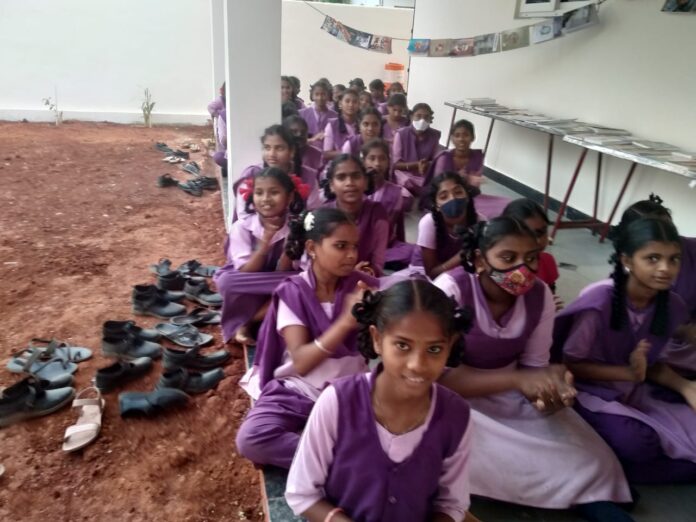
A decade ago I wrote in my book, “Chronicles of a village boy in New Delhi”, how despite retaining values and lifestyle of a village, I carved out a niche for myself, for the kind of initiatives I took over fifty years of my stay in New Delhi. Five years ago, I wrote “As We Sow, So We Reap”, reminding in today’s context how and what children are exposed and experience and what contributes for their accomplishments. One year ago I initiated a new book which I’m not able to complete (Twists, Turns and Turning Points), as I have become sensitive to fast changing ground realities to do with children in particular context of villages. A key concern of this proposed book is why hardly two percent of school going ever accomplish anything different or particular. Villages continue to survive despite succumbing to markets, consumerism, corporates and populistic public policies of successive governments. Villages and individuals are now undergoing visible socio-economic transformation as never before and different from what was envisioned by our forefathers and national leaders. And yet neither the mass media nor researchers at any level are doing anything to understand the phenomena or analyse the change process for larger sensitivity or for their future implications. What they cover is merely an event or occasion, or individuals.

School children and youth neglected
In this process of change children and education are visibly effected and undermined as if neither the parents nor teachers nor the policy makers have taken cognisance of the trend and their implications. My 60 years of research on a range of issues and concerns reminds that school children and youth are a neglected section when the need is special attention. One such intervention is to make children read biographies of those who made a difference in their respective field. That is how I have come up with “three in one” initiative with one big idea. First, reversing the trend of migration from villages. That is how I have decided to mark my stay in the village, revive my ancestral connections and see in what way I could contribute locally too. Second, having recognised unique importance of reading biographies in local language take that as a critical step for enthusing and enriching children, I have set up India’s first Library of biographies in memory of my parents which was inaugurated on February 21. Third, now that I’m concerned of the big changes taking place in the rural settings and in the lifestyles of people, I thought I should be an independent “observatory post” so that the transformation could be tracked and unravelled even symbolically and signal the implications or consequences.
Also read: Without a generational change in political command, can India expect to do any better coming decades?
Book reading by school children
The Government should be complimented for coming up with the idea of book reading by school children for hundred days to catch up with disruption of school schedules in the wake of pandemic. But this idea should not limit to reading in school. Special category of Books could be made available for home as well. My research over the years and that of BREAD Libraries in over 1500 public schools convincingly brings out that reading biographies in local language is fastest and fascinating way of igniting young minds. That is how I could gather biographies of some 750 personalities in Telugu for Nagulapalli Seetaramayya children “Library of Biographies” in my village, Mudunuru, of Krishna district in Andhra Pradesh, where I’m staying back to demonstrate the big idea with these of my small steps. I already found overwhelming enthusiasm particularly among girls. But after extensive visit to every section of the village and institutions apart from the schools and observing the trend of going for private schools in two towns nearby I realise the vacuum and why not many children are accomplishing, despite a Zilla Parishad high school and three elementary schools in the village including the one I had set up 25 years ago. Certain confusion about education policy and its implications are adding to the problem. This is to do with the status of Anganwadis (pre-primary) and regrouping of elementary classes with local high school.
Also read: What should India explore next 25 years to have Amrit Kaal by 2047?
Policy confusion due to lack of research

Taking the policy confusion arising out of lack of research, (2 to 4 years) Anganwadis are being merged with elementary schools. This is without field study as to Anganwadi workers and their role. Then there is confusion about curriculum. Despite reference in the policy about yoga and prayer and claims, for example, resistance continues in many schools. This remains contentious giving scope to religion based misconceptions. For example, Teachers themselves are divided on allowing Yoga or Dhyanam, morning prayer, and even on continuation of subjects or reference to certain songs or lessons perceived as of religious. This confusion is brewing divides from primary level itself and remains an undercurrent that could be politically exploited as and when politicians require.
My discussions with stakeholders brings out that Merger modalities have not been studied and as a result it remains on paper so far as neither teacher is sincerely interested to take the idea forward. The issues are to do with space, infrastructure, distance from residence of children, training, teaching methods, and supportive material. In all this parents and villagers remain passive as they were not consulted at any stage. Confusion in education is too obvious.
Today there are three different models of schools in vogue. The public or government schools, local private (recognised) school, nearby corporate (tie, boot and bus) school with considerable fees, and local private tutorials mostly by retired or an unemployed youth more as a stopgap.
Also read: Rejuvenating villages by bringing children and women to the forefront
3 hours in journey
Four buses of private corporate schools from two 11km away towns mop up nearly 30 children of the village including a few for primary and secondary level. These children spend not less than three hours in the bus going and coming to school. They leave home around 7.30 am and come back after 4.30 pm, some after 7pm. Most of them in uniform which includes boots, tie and a load of more than ten kg bag on shoulders (unconcerned of the temperature and shoulder pain). Seeing them even local public school children started carrying as much load comprising only books since they are provided with midday meal they do not carry lunch box as in the case of others.
Also read: Will we ever come out of job-centric fix of education?
Villages, not just my village, are facing a “rise-fall” syndrome. It is so obvious and yet hardly understood and studied or perhaps ignored. At this rate it is down-hill further of villages. This is despite proliferation of Government offices, employees in villages, multiplicity of welfare schemes to villagers, better infrastructure and connectivity. But all this has fuelled citizen dependency on government agencies with no efforts at any level to reverse the trend. Rejuvenating villages is not possible without depoliticising, de-ritualising and polarisation as a focussed concern. Only then citizen could be liberated and unleashed of their potential. The worst effects of such a trend are children and public schools and calls for urgent streamlining which is not possible without local villagers taking active interest. This is what my book next month “Whither Villages of India…” is all about.
(Dr N Bhaskara Rao is a longstanding public policy analyst based now in his native village, Mudunuru in AP).





It’s a very good article which is thought provoking.
Dr Rao’s interest in rejuvenating villages is laudable. Most of his concerns would be addressed by New Education Policy. His focus on biographies will be helpful to youngsters. The number of sports medals won and the quality of persons getting Padma awards are proofs of starting of depoliticisation in India and as desired by Dr Rao it may reach villages in course of time.
Respected author Dr. Dr. Bhaskar Rao garu, at the very out set I appreciate your efforts on studying the complex subject EDUCATION IN INDIA and particularly your focus on rural front. As you rightly pointed out in the article every school in the village is political centre too. Teachers working particularly in villages are concerned more about the local leaders than that of the students’ interest. Former Prime Minister PV made an effort by initiating Jawahar Navodaya Vidyalaya to fill the gap. I wish your upcoming book will bring out more aspects on the subject. Thank you Sir.